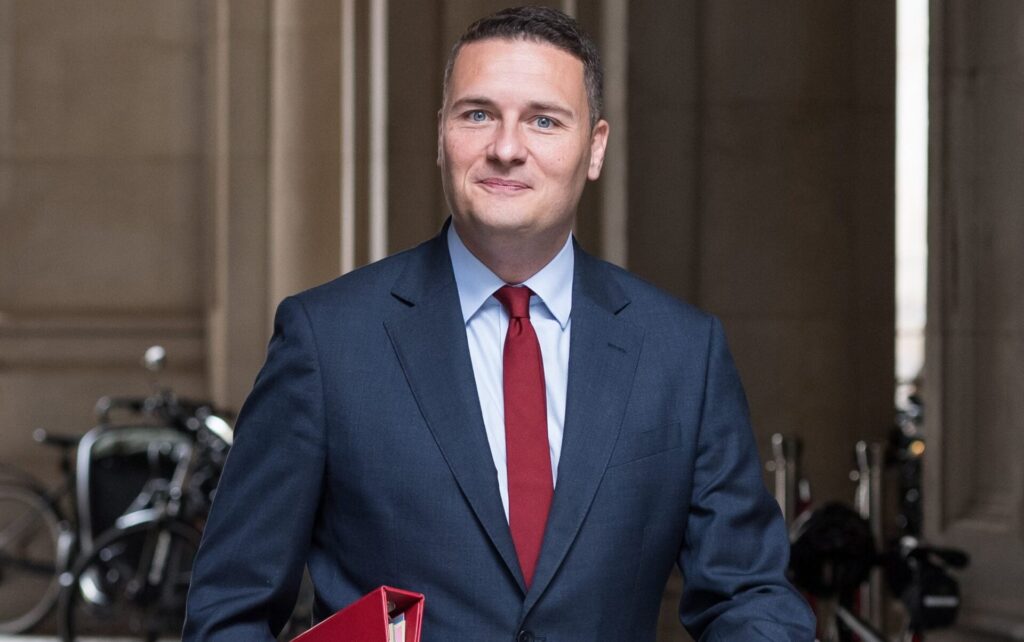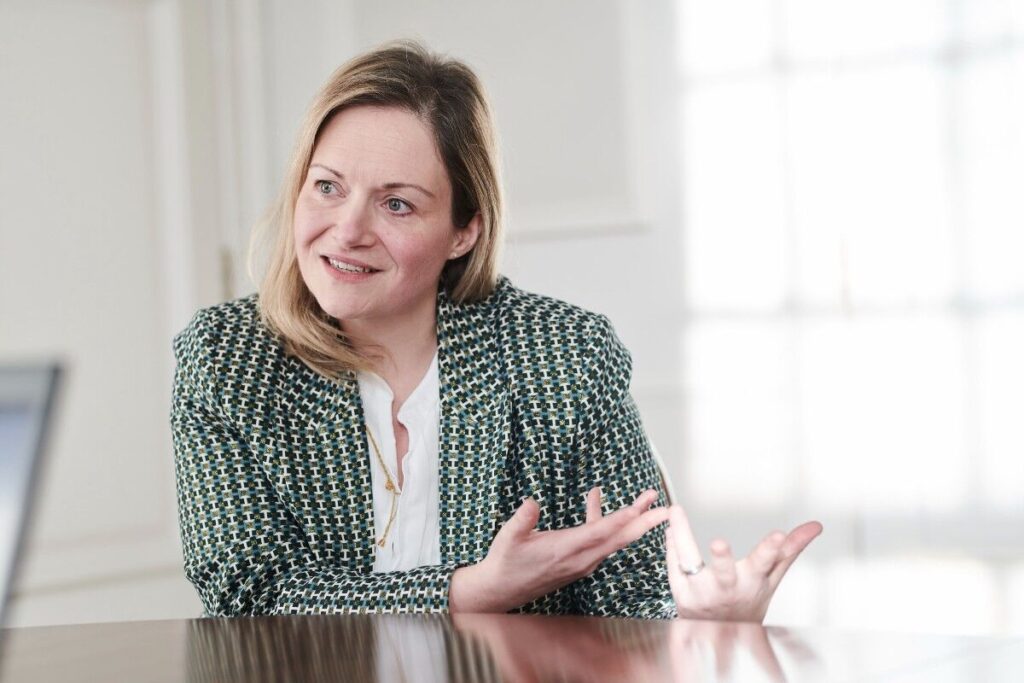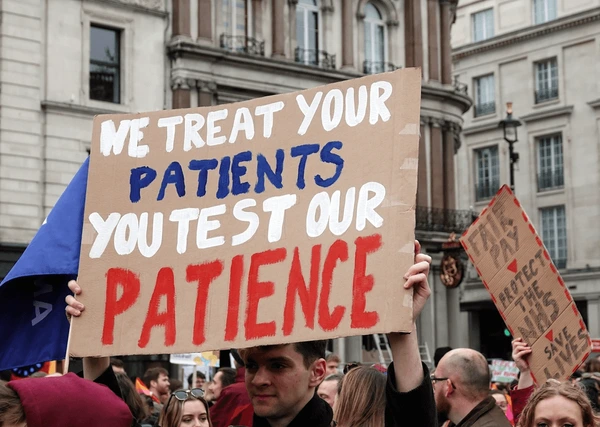
Family physicians are getting ready to “ramp up” their conflict with the government, which has been disregarded up until this point, according to the chairman of the GPs’ committee, who is affiliated with the British Medical Association.
It is understood that the escalation will result in general practitioners being more stringent about the terms of their “work to rule” protest, which involves being required to perform the minimal amount of work that is contracted for, and might lead to a complete walkout in accordance with “phase two” preparations.
Wes Streeting, the Secretary of Health, has advised general practitioners not to “close the door on patients,” and authorities have forewarned them against going on strike.
Since the beginning of August, family physicians have been engaging in “collective action,” which includes limiting the number of patients they treat on a daily basis to a maximum of 25, but many of them have not yet implemented these measures.
During an interview with the Health Service Journal (HSJ), Dr.. Katie Bramall-Stainer, who serves as the chairperson of the BMA GPs’ committee, stated that the union had adopted a “measured” approach with the government in order to provide them with a “window of opportunity” to address the disagreement; however, they had not received any response.
A number of things are going to be tightened up at general practitioner clinics, one of which is the limit on the number of daily appointments. Additionally, more disruptive protests are going to start.
This includes general practitioner offices withdrawing from data-sharing agreements with secondary parties with the National Health Service (NHS), refusing to share patient data unless it is in their best interests, and turning off software that advises prescriptions that are less expensive.
The measures will be included in a work-to-rule handbook, also known as safe-working guidelines, which will provide general practitioners with an outline of how they can protest while reducing the risk to their patients.
The British Medical Association is also getting ready to take more measures, which may include “contract breach actions.” While speaking with Mr. Streeting, Dr. Bramall-Stainer stated that it was “time to play hardball.”
This past week, the government announced that it will be increasing the “global sum” funding by 7.4 percent, which is an increase that is above the rate of inflation. The funding is approximately 500 million pounds and is the primary source of revenue.
However, the British Medical Association (BMA) is demanding 10.7 percent as part of the dispute in order to “restore” lost income. The system compensates practitioners per head for each and every patient that they have on their books.

Dr. Bramall-Stainer stated that this may be “incremental” and that the BMA would be willing to make a commitment spread out over ten years.
According to what we informed the government, “All right, we’ll put off the publication of our safe-working guidance handbook.” We will provide you with a brief window of opportunity to then return to us with some ideas, and then we will have a chat about whether or not to proceed. According to her statement to the HSJ, “And that felt responsible, it felt professional, and it felt measured.”
On the other hand, I’m depressed to report that my phone hasn’t rung yet. However, I have not received any communication from anyone, and the following week, we will be launching our safe working guidance, and we will also begin to ramp up this.
Additionally, she asserted that she had “never spoken to Amanda Pritchard,” the chief executive officer of NHS England, and made the following statement: “I would love to have a conversation with her.” Although there is a lot of talk about primary care, I would really like to see it play a much more significant role. However, we need to start seeing some walking from the National Health Service.
There will likely be thousands more hospital consultations as a result of the general practitioners’ action. One method of protest involves referring patients straight to specialists rather than pursuing more complicated procedures inside the NHS.
GPs are finding it increasingly difficult to navigate the procedure of referring patients to hospital experts. According to Dr. Bramall-Stainer, the fact that individuals were frequently rejected without being given an adequate explanation or being handled appropriately indicated “a behavioural and cultural phenomenon, and that begins at the top.”
It was her assertion that the worst behaviours exhibited by the most senior members of a company are what determine the culture of that organisation. They are not the National Health Service; they are general practitioners. We are dismissed, reduced, and belittled, and we are not even discussed.
“You are in possession of all the information that you require, and you must put an end to that.” This action includes that as a component.

NHS England has instructed local health boards to establish plans to deal with the repercussions that will be felt throughout the entire system.
“Supporting general practice and making it more sustainable is a priority for the National Health Service (NHS), and we are working with the government to implement the recommendations of the Pay Review Body for Doctors’ and Dentists’ Remuneration, as well as adding newly-qualified general practitioners to the additional roles reimbursement scheme,” said Dr Amanda Doyle, a general practitioner who also serves as the director of primary care for the NHS.
It is our intention to continue collaborating with the profession in order to further enhance general practice for both staff and patients and to ensure that it is prepared for the future.
“The Secretary of State has made it abundantly clear that he wants to work with staff to fix the National Health Service (NHS), and he will work with general practitioners (GPs) and patients to shape the Neighbourhood Health Service so that it can be at the centre of the 10-year health plan,” said a spokesperson for the Department of Health and Social Care.
“We would like to strongly encourage the British Medical Association to refrain from taking any future industrial action, as this has the potential to cause significant disruptions to patients.”